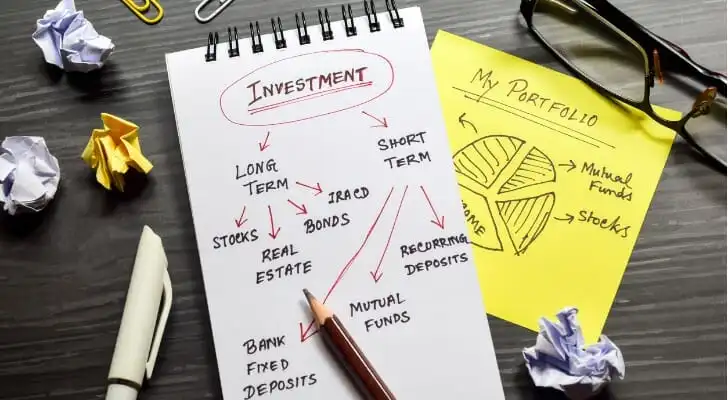
Foundational Mindset: Financial Freedom Is a Skill
Many people think financial freedom is about “having big capital,” “winning big investments,” or simply “being lucky.” In reality, skill in managing money is what financial freedom truly comes from.
A simple definition: you are financially free when passive income ≥ monthly expenses. This is called the coverage ratio. When it reaches ≥1, you no longer depend on your job to live.

To achieve this, you need to master three skills simultaneously:
The Skill of Controlling Expenses
The first step to keeping money is controlling expenses. Many people earn well but still go broke because of constant leaks: coffee, fast food, unused apps, or impulse shopping. The solution is not cutting out all joy, but living below your means: track expenses, set limits for each category, apply the 50/30/20 rule, or divide into four accounts (necessities – emergency – investment – enjoyment). Once cash flow is under control, you always keep a surplus to accumulate.
Increasing Savings Rate
Saving is not just setting money aside, but capital to start investing. The higher your savings rate, the shorter the time to financial independence. In reality, someone saving 40% of income can reach the goal in 11–12 years, while saving just 10% may take nearly 30 years. To raise savings: automate transfers right when you get paid (pay yourself first), increase it quarterly, and tie it to specific goals such as buying a house, investing in ETFs, or trying prop trading.
Maintaining Long-Term Investment Discipline
After building capital, the key factor lies in long-term discipline. Many miss opportunities by selling too quickly during market swings or chasing hype trades. Compound interest only works if you stick to the process: regular investing (DCA), rebalancing, diversification, and maintaining a 10+ year horizon. Write a one-page investment handbook with goals, allocation, buy/sell rules, and rebalancing schedule. Patience and discipline turn small savings into significant wealth.
None of these factors are random—they are skills you can train.
Why Are Money-Keeping Skills More Important Than Luck?

1. Cashflow Design
Keeping money is not “saving leftovers.” It’s a proactive structure. The classic formula:
- Necessities – rent, food, transportation.
- Emergency – emergency fund, insurance.
- Investment – ETFs, stocks, real estate, prop trading.
- Controlled enjoyment – travel, leisure.
Apply the principle “Pay yourself first”: whenever you receive income, transfer into “emergency” and “investment” first, then spend.
2. The Skill of Managing Behavior and Emotions
Money often disappears not from bad investments, but from consumer temptation. People are easily swayed by emotions—flash sales, FOMO (fear of missing out), or herd mentality. These factors drain personal finance faster than any market risk.
To fix this, apply simple but effective techniques:
- 24-hour rule – when you want to buy something, wait 24 hours. If you still need it, then buy.
- “Buy later” list – helps separate real needs from emotional wants, preventing impulse buying.
- Disable one-click payments on your phone or e-wallet, adding friction so you think twice before spending.
- Only invest in what you understand.
3. The Skill of Risk Management – Keep Money Before Growing It
- Emergency fund: 3–6 months of expenses.
- Life, health, and property insurance.
- Avoid high-interest debt; pay it off before investing.
Risk management is about maintaining the pace of your financial plan, preventing setbacks from wiping you out.
4. The Skill of Increasing Income
Some people with high incomes still go broke. The reason: spending inflates with earnings.
On the other hand, if you increase income while keeping your lifestyle the same, your journey to financial independence shortens significantly.
- Negotiate higher salary.
- Upskill—learn new tech, languages, management.
- Side gigs (freelancing, online business, prop trading).
- Revalue your time: focus on high-value work.
5. Principle-Based Investing

Investing doesn’t require genius, only discipline:
- Proper asset allocation (ETFs, stocks, gold, prop trading).
No one knows which market will win in 5–10 years, so spreading funds is essential. A balanced portfolio might include ETFs/index funds for overall market exposure, stocks for growth, gold for crisis hedging, and prop trading for high-risk, high-reward opportunities. Diversification prevents “all eggs in one basket.” - DCA – regular investing, emotion-free.
Dollar-Cost Averaging means investing a fixed amount on schedule (monthly/quarterly), regardless of market ups or downs. This reduces timing risk and removes emotions from investing. - Portfolio rebalancing.
Over time, asset ratios shift due to price movements. Without rebalancing, risk may exceed your tolerance. For example, if stocks surge to 70% of your portfolio, you should trim and shift into gold or ETFs to restore balance (e.g., 50/30/20). - Keep costs low (prefer ETFs, index funds).
Fees silently eat profits over decades. That’s why wealthy investors favor ETFs and index funds—broad diversification with ultra-low cost. - Patience—at least 10 years for compounding to work.
Warren Buffett once said: “The market transfers money from the impatient to the patient.” Compound interest only works with time. Ten years can turn steady contributions into results far beyond simple savings.
Core Skills – Apply Them Now
- Management skill: Four-account money system (necessities – emergency – investment – enjoyment). This ensures your money is automatically structured, not spent.
- Consumption skill: Pre-purchase checklist—“Will I use it ≥10 times? What’s the value per hour?” If unclear, wait 24 hours. This skill shields you from emotional spending.
- Discipline skill: 2-increase, 1-hold rule. Each quarter, raise your savings and investments while holding lifestyle steady. A skill for avoiding lifestyle inflation.
- Planning skill: One-page investment handbook. Define goals, allocation, buy/sell criteria, and rebalancing schedule. A skill that prevents emotional decision-making.
- Measurement skill: Track three key indicators monthly—savings rate, runway (months you can live if income stops), and coverage ratio (passive income/expenses).
Conclusion
Money does not keep itself—you must set clear rules.
Consistency beats cleverness—compounding needs time and discipline.
Financial freedom is not an event but an outcome—from spending skills, saving skills, investing skills, and risk management.
Luck may help you start, but skill determines how far you go.

















